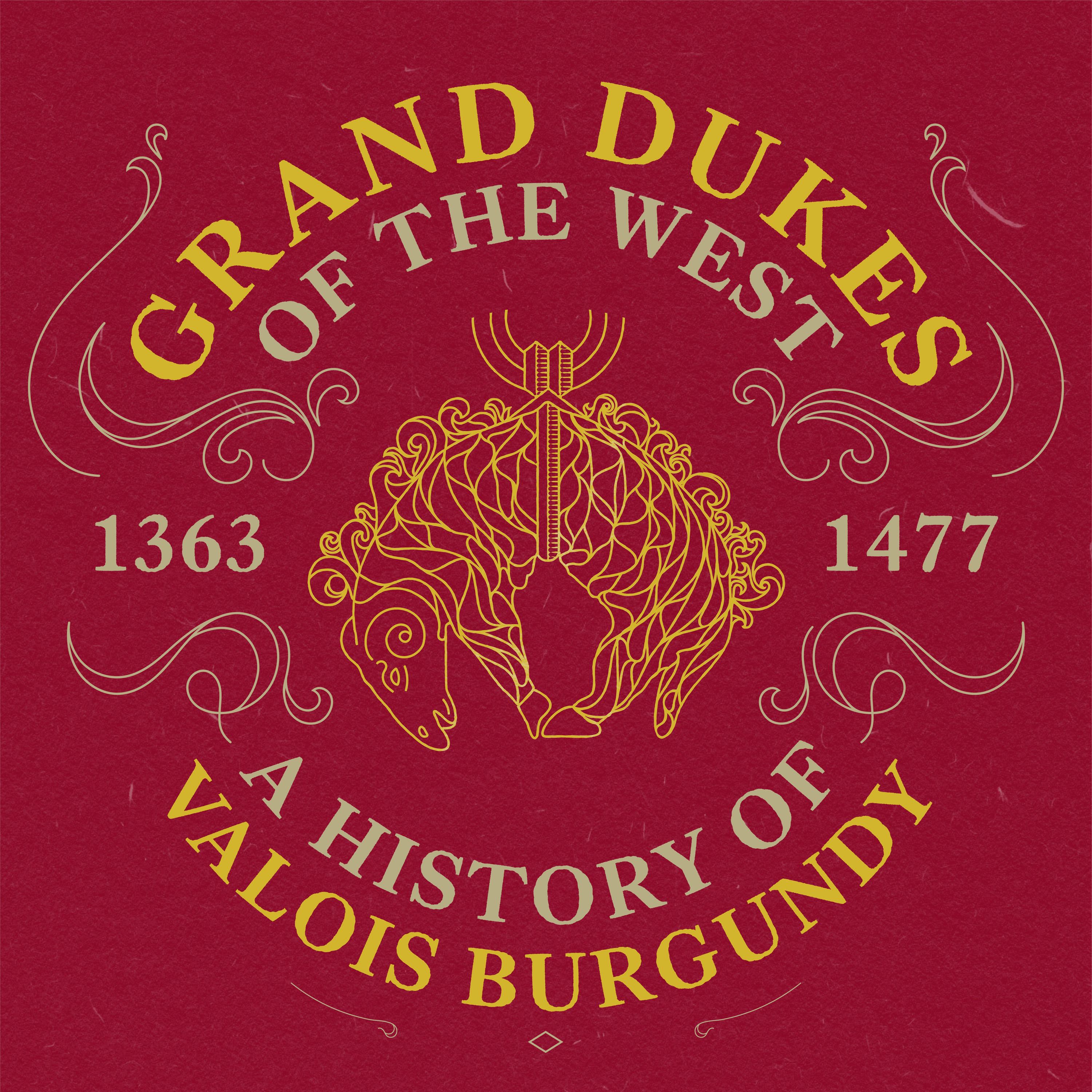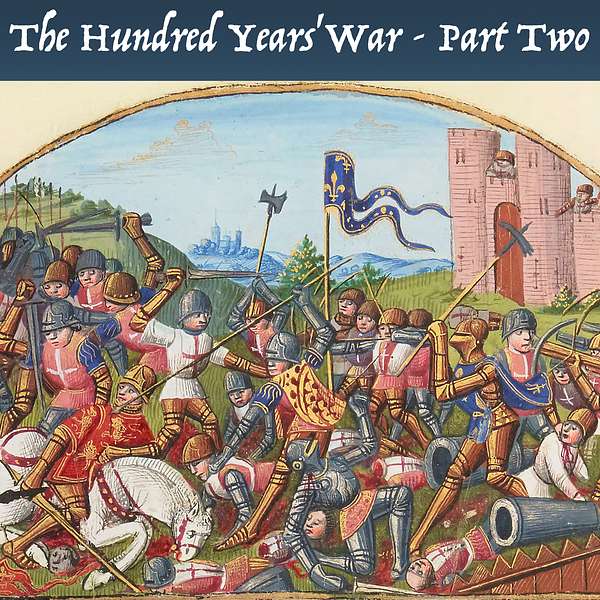
La Fayette, We Are Here!
La Fayette, We Are Here!
The Hundred Years’ War, Death by all Means - Part Two
This part-two of a two-part episode on the Hundred Years' War. I encourage you to listen to the previous episode if you haven't already done so.
England owns a third of the French kingdom. War has ravaged France for a quarter of a century. The Black Death has killed millions of people and keeps coming back. At the end of the XIVth century, France is in its worst state probably ever.
But the French will fight back, under the leadership of Charles VII and of an extraordinary young woman, Jeanne d'Arc. Listen to this extraordinary medieval tale full of bravery, foolishness and cruelty.
Listen to HOLOCAUST HiSTORIES podcast!
Timecodes:
Introduction
05:56 - Civil War in France and the Arrival of Henry V
10:43 - The Battle of Azincourt (Agincourt)
13:26 - Jeanne d'Arc and the French Resurgence
21:58 - Jeanne d'Arc at Orléans
28:23 - France Reconquered
34:53 - Conclusion
Music: Marche pour la cérémonie des Turcs, composed by Jean-Baptiste Lully, arranged and performed by Jérôme Arfouche.
Art: The death of John Talbot at the Battle of Castillon. XVth century.
Reach out, support the show and give me feedback!
England owns a third of the French kingdom. Aquitaine, Calais, Ponthieu and the county of Guines all are under the rule of the king of England, Edward III. His son, the Black Prince, proved a formidable military commander, capturing the French king at Poitiers in 1356. War has ravaged France for a quarter of a century. The Black Death has killed millions of people and keeps coming back. At the end of the XIVth century, France is in its worst state probably ever.
But all is not bleak or lost in the French kingdom. Charles V the Wise, king of France, manages to stabilize the situation and to create the conditions for a French recovery. The French will fight back but the English will triumph a few more times. We will also witness the arrival of an extraordinary figure in medieval history: Jeanne d'Arc. We will now explore the second part of the Hundred Year's War.
Welcome to La Fayette, We are Here! The French history podcast for the American public. I am your host, Emmanuel Dubois, and today we are talking about the Hundred Years'War or la guerre de Cent Ans in French. That enormous conflict, or series of conflicts actually, ravaged France from 1337 to 1453. This is part-two of a two-part episode on this enormous war. I encourage you to listen to the previous episode if you haven't already done so.
As I mentioned last time, the king Jean II had signed the treaty of Brétigny, giving much territory to Edward III but preventing him from becoming king of France. Charles V will basically tear the treaty apart. After reinforcing his own position and his kingdom's, he started to retake what had been taken way. Various French lords, especially the Comte d'Armagnac, asked the French king to be the arbiter in cases opposing them to Edward, in English-controlled French lands. The English king even decides to claim the French throne again. Following this, Charles launches a series of campaigns after 1369 that will prove largely successful, helped by his brother the Duke of Burgundy. By 1377, when Edward III dies, the English holdings in France have been largely reduced.
Charles dies in 1380, so we have now two new kings. Richard II in England and Charles VI in France. Both were teenagers when they became kings and this creates a very interesting situation. The French king's uncles take power into their own hands, each having his own agenda. This undoes or weakens lots of Charles V's political accomplishments. The uncles fight amongst themselves and are financially irresponsible. Their spendings forces them to raise new taxes and revolts ensue. The Flemish revolt is particularly dangerous because of the economical importance of the region and of its links with England. It culminates with the battle of Roosebeke in 1382 were the French army destroys the Gaunt militias. The "gouvernement des oncles" or "government of the uncles" is decidedly more interested in their own interest than the kingdom’s. The French kingdom descends into chaos again and soon, into madness.
Things aren't much better on the other side of the channel. Richard II has to cope with revolts in the countryside. He cannot prepare an army for a new campaign in France. He doesn't have the means nor the manpower. All this leads both sides to sit at the negotiating table. A truce is concluded in 1388, it will mark a pause in the conflict between France and England, but not in the bloodshed.
Civil War in France and the arrival of Henry V
What do you do when you don't have an enemy from without to fight. You find one from within of course! At the turn of the XVth century France is free of English troops ravaging its countryside, but its central power is inapt. Charles VI is a far cry from his father and has grave mental health issues. His personal reign starts in 1388 and he starts to have violent dementia crisis in 1392. Once, he almost burns himself alive. He often forgets who is is, or think he's made of glass and locks himself up in his room. Because of this, his uncles, the dukes of Berry and Burgundy decide to reinstitute the regency and to administer the kingdom themselves. Charles' brother, Louis, also tries to influence policies and things will soon turn very sour.
Philipe le Hardi, Duke of Burgundy, dies in 1404. His son, Jean sans Peur or "John The Bold" takes his place. He hates Louis, the king's brother, and this personal strife will contribute greatly to the beginning of a civil war in France. Jean decides to take matters into his own hands and has Louis assassinated in 1407. We now have two factions in France: the Armagnacs, named after the count of Armagnac who supported Louis, and the Bourguignons or Burgundians. Both factions will ask for help from England, hoping to tip the balance in their favour. Since 1404, the English throne belongs to Henry of Lancaster, king Henry IV. I don't have the time here to dwell into the internal conflict that led to his crowning, but Richard II died in prison in 1400… France and England really were a mess at the time.
Jean sans Peur promises the king of England that he will give him some towns in Flanders and help him in retaking Normandy if he supports his cause. The Armagnacs tell the king that they would give him back all the territory lost since 1369. Henry decides to support the Armagnacs in 1412. Political manoeuvring follows in such a way that English troops land in France, close to Cherbourg and take some French cities without encountering any resistance. The French are busy fighting each other all over the country. Jean sans Peur manages to fuel a rebellion against the Armagnacs in Paris in 1413. The revolting Parisians will be butchered, an episode of French history known as the Écorcheurs, or Skinners. Nevertheless, the Parisian leaders start to establish stronger links with the new Dauphin Louis and with the Burgundians. The Armagnacs remain the masters of Paris, for now.
To go deeper into the role of Flanders and Burgundy during the whole period, I encourage you to listen to the podcast "Grand Dukes of the West" by Josh Zucker, it's a fantastic resource.
Henry IV dies in 1413 and his son Henry V becomes king. He will have a short but very marking reign. Henry V pretends to want peace, but also demands that France give him back every English territory, even those taken by Philipe August, two centuries before! The Armagnac faction fears an Anglo-Burgundian alliance against them, so they are inclined to accept most of the English king demands. However, they refuse to cede Normandy and Henry replies by leading his army on French soil in 1415, the first real English campaign on French soil for almost thirty-five years.
Because of this, the Burgundians and the Armagnacs decide to cease their hostilities, at least in theory. Jean sans Peur won't attack the Armagnacs but neither will he help fight the English. Nevertheless, the Armagnac raise a huge army to meet Henry V during the fall of 1415. At first, the English army retreats before the superior French force. They will stop this retreat close to the village of Azincourt on October 25 1415.
The battle of Azincourt, or Agincourt, is another great English fait d'armes. It's probably their greatest victory along with Crécy and Poitiers. Just like at Crécy, the fine fleur of French nobility is present at the battle. But there is no unity, no clear leadership. Contrary to the English, led by their king, the French are under an assortment of powerful nobles and princes of the blood. There is no common strategy, no coherence. On top of that, the terrain is muddy, the passage between the forests narrow and the English well led. It's a recipe for a new disaster like Crécy almost a century before.
The French attack with heavy, incoherent waves and are under heavy fire from the English longbowmen who will, again, be the decisive factor in the battle. They are knee-deep in the mud and cannot move with their heavy armour. What should have given them protection is actually a huge hindrance in such an encounter and makes them sitting ducks for the English archers. Once the English run out of arrows, they attack the exhausted Frenchmen with swords and axes. Not having heavy armours, the English can move much better on that slippery terrain. Finally, an English cavalry charge finishes of what's left off the French army.
At least 6,000 Frenchmen died in that battle, out of a contingent of around 15,000. The English lost 600 out of 9,000. On top of that, many French important nobles are either dead or prisoners. Even the king's direct cousin, Charles d'Orléans, is made prisoner. France, divided by its internal war, lost a major battle yet again. The French cavalry is no longer the master of the battlefields like it had been for centuries, especially under the Franks. The English king, triumphant, advances and takes more and more French territory.
Jeanne d'Arc and the French Resurgence
Following the debacle at Azincourt, the French nobles panic. They contact the Holy Roman Emperor, Sigismund to mediate a peace with England. However, Sigismund decides instead to ally himself with Henry. Jean sans Peur, Duke of Burgundy, recognizes Henry as the rightful king of France. The Armagnac faction and the French crown are gravely threatened!
Over the next few years, Henry reconquers Normandy and the Armagnac have to retreat. The Dauphin Louis dies and the Armagnacs have to leave Paris, letting the Burgundians take over the city and the government. The king's son, Charles, recently made Dauphin because of his brother's death, barely makes it out alive in 1417. That's when our story takes another turn for the worst.
Henry is closing in on Paris. Armagnacs and Burgundians alike fear that the French capital should fall to the English troops. They begin discussions but they are promptly halted when Jean sans Peur is assassinated in 1419 on the Montereau bridge while meeting with the Dauphin Charles. This puts a halt to any talk between Burgundians and Armagnacs at this stage of the conflict.
Henry V went to France hoping to recover some territory. But he now sees a real opportunity to become king of France. The new Duke of Burgundy, Philippe le Bon or "The Good" believes that some sort of compromise with the English is preferable too. This is how we arrive to the treaty of Troyes of 1420. Signed by Charles VI of France and Henry V of England, it makes Henry the heir to the French throne. This unique approach of a Double Monarchy was meant to end the feud once and for all. The treaty disinherits the Dauphin completely and forces the French king's daughter, Marguerite to marry Henry. It's a new low for Charles VI and the French crown and a triumph for Henry V.
Of course, the Dauphin Charles contests that treaty, and rallies a good proportion of the French nobility behind him. France is cut in two and the war becomes one of attrition between the two parties. Henry V dies in 1422 and his son is only an infant. Charles VI dies the same year. The Dauphin Charles is 19 but cannot be crowned king, since the Reims cathedral, where French kings are always crowned, is under English control. Neither side is powerful enough do deal a final blow to its opponent. Charles nevertheless proclaims himself Charles VII. In England, Henry VI is crowed king of England and of France. They are also direct cousins, at least it stays in the family.
The English regent, Bedford, reinforces the alliance with Burgundy, a wise move under the circumstances. He also allies England with Brittany. Charles VII, manages to play politics in his favour and weakens that last alliance. Nonetheless, the conflict resumes, England and France face each other off once again.
Charles has to live south of the Loire river, everything north of it being controlled by either the English or the Burgundians. He starts a campaign that he hopes will be decisive by forcing the English to lift the siege of Orléans, the main city of the Loire region. What he didn't know then, what nobody knew, is that he'd have help. Not from another count or Duke. Not from another king. But from a young girl of Lorraine named Jeanne.
We should digress a bit to talk about Jeanne d'Arc. She's a most extraordinary figure. Not only because of what she accomplished, but because of her origins. She's not noble, she's not rich, she cannot read, she's not close to the king or the court and yet she will prove essential to the French resurgence and reconquest of their own kingdom. It would be incredible in any time period, but in the Middle Ages, in a feudal system so rigid that social movement was next to impossible, one could say that it's almost a miracle.
Jeanne was born around 1412 in Domrémy, in Lorraine. She's brought up as a housewife. Her father Jacques occupies a few official functions in their village. She also work the fields. She's also extremely pious, even at a very young age. Domrémy is on a heavily frequented road between Flanders and Burgundy. That brings trading goods, wealth but also marching army. The war and its horror knock at door more than once. To make matter worse, the region supports the Armagnac cause, causing the close-by Burgundians to wage cruel retribution.
Around 1425, Jeanne claims to hear voices coming from the Archangel Michael, Sainte Marguerite and Sainte Catherine, saying that she has to save the French kingdom. In 1428, she goes to see Robert de Baudricourt in Vaucouleurs to plead her case, stating that she was sent by God to rid the kingdom of France from the English, to have the Dauphin crowned and to put him on the throne. He refuses at first, but finally accepts in 1429 to contact the Dauphin in Chinon to ask for an audience. Charles accepts and Jeanne leaves for Chinon, escorted by two of Baudricourt's men. She reaches Chinon on March 6th 1429.
That's when the legendary meeting between Jeanne and Charles happened. To verify if there was basis in her claims, Jeanne is invited to see the king at his court. The king is here, but so are many noblemen dressed in the same way. Without personally knowing Charles, there was no way to identify him. Jeanne enters the room and goes straight to Charles. To many at the time, this proves her claims that she was sent by God. She talks for a long time with the Dauphin who seems very moved. Nevertheless, he decides to have her examined by a comity of theologians in Poitiers to ensure that she is what she claims. Another version of this story is that she met with the Dauphin privately for a short time and convinced him. I find this a bit more believable.
The theologians of the University of Poitiers question her in every possible way. Jeanne proves to be very intelligent and precise in her answers. She never has any trouble answering them. In the end, they approve of her story and send her back to the Dauphin. All this is already quite extraordinary, and yet it's only the first act of a remarkable medieval play.
Now that there are no more doubts on Jeanne, Charles backs her in her endeavours. She's given a complete armour, and she's sent to Orléans, leading a whole royal detachment of around 500 soldiers. She reaches Orléans, still besieged by the English army, on April 28th. Jeanne wants to strike immediately but the local commander, Jean de Dunois, persuades her and her entourage that they must first enter the city to re-supply the population and the troops.
Jeanne enters Orléans on the 29th, under the cover of the night. She is welcome by the Orléanais who come to see her in droves. She sends messengers to the English commanders, demanding that they leave. The English send them back and even threaten to kill the messengers, having been sent by a "witch" as they say.
Dunois left the city for a few days to bring back reinforcements. During this time, Jeanne examines the fortifications and the positions of the English army. Dunois comes back, and launches an attack on May 4th, without telling Jeanne. Jeanne puts her armour on, grabs her banner and rides to the battle. The French manage to take fort Saint-Loup, one of the English fortifications around Orléans. A couple days later, Jeanne leads an assault on another English fort and even rallies fleeing French troops during the battle. She's victorious and the English have lost another fortified position around Orléans.
The last and final assault was to be on the Tourelles, or Turrets of the city. Even though she's lightly wounded, Jeanne decides to take part in the assault. Encouraged by her courage, many inhabitants decide to join in and help the army. The French soldiers attacked the English fortifications and suffered heavy losses. At one point, the assault seemed to have stalled and Dunois wanted to stop, regroup and to try again the next day. Jeanne left to pray, then came back running, grabbed a ladder and started climbing the wall, yelling at the French soldiers to encourage them. It worked, and they renewed their assault with even more force than before. The English were completely taken aback by this. Jeanne was gravely wounded by an arrow during the assault, but she was carried away by French soldiers to be treated. After a few more hours, the French soldiers had taken the tourelles. On May 8th, the English army lifted the siege of Orléans.
This victory was a turning point for the French army. Galvanized and believing that God was on their side, the commanders and soldiers faced a completely different situation than the one before Jeanne had arrived. The French troops then win a series of battles along the Loire river, forcing the English to retreat further north. The most important battle is fought at Patay in June 1429, were a relatively small force of 1,500 Frenchmen defeated an English army 5,000 strong. They outmanoeuvred the English troops, canceling the advantage of their longbows. The longbow-men, outflanked by the French, suffered very heavy casualties. It was a completely one-sided battle, with the French outclassing their counterparts, even more than they had been at Crécy or Azincourt.
Following these successes, Jeanne convinces Charles to go to Reims to be crowned formally. He didn’t want to risk it at first, as Reims was still in enemy territory, but Jeanne understood the power of symbolism better than him. The Dauphin gives in, makes the journey safely and is crowned on July 17th 1429. This reinforces Charles' legitimacy and diminishes the king of England's. Charles keeps pushing but a bit timidly, not attacking any major cities, he instead tries to negotiate with the Burgundians and English. Eventually, the fighting resumes and Jeanne participates in various battles, inspiring and leading French troops. But then, tragedy strikes. Jeanne is captured by the Burgundians during the siege of Compiègne in 1430. She is then sold to the English to be tried as an heretic.
I won't talk here about Jeanne's trial, it would take too long and it is really a farce, but she is found guilty of being an heretic by Pierre Chauchon, bishop of Beauvais, who collaborates with the English. Since her legitimacy was based on her being God’s messenger, they tried to destroy her image. She is burned at the stake on May 30th 1431. Jeanne had hoped that the French king would save her, but he abandoned her, estimating that she's more trouble than she's worth at this point. Indeed, she was becoming more popular than the king! Some of her companions did try to free her, but to no avail.
Following her execution, she becomes a martyr in the eyes of the French people and rumours are already rampant that she should be canonized. What is certain is that she had a huge impact on the French crown, its army, and the country as a whole. She basically changed a dynastic war into a national and concerted effort, almost overnight. Completely altering the nature of the war, and especially of the French engagement in it. Quite impressive for a young, illiterate woman of the Middle Ages.
France Reconquered
After Jeanne's intervention and Charles' crowning, the English keep suffering defeat after defeat. Henri VI tries to legitimize his claim to the French throne by being crowned king of France in December 1431 in Paris, but it doesn't help his cause. The English army in France starts showing cracks and the English king is under pressure from his own nobles regarding the recent setbacks.
Charles VII of France, reinforced by his military successes, starts new negotiations with the Burgundians. Philippe the Good, Duke of Burgundy, accepts to switch sides and signs the Peace of Aras in 1435. The Duke earns a lot in this treaty, various cities and abbeys, but the French king needs peace with his fellow Frenchmen. The English king loses a precious ally, the only one who recognized him as king of France and England. His legitimacy in France is completely destroyed.
The next eighteen years will be marked by a huge French reconquest. Even though Charles faced some dissension and even a rebellion of some high-ranking nobles in the 1440s, he manages to stay in power and even to reinforce the French royal authority. At the same time, England experiences many internal problems and has to sue for peace. A truce is signed at Tours in 1444. Charles makes the best of the time he just earned.
He reforms the French financial system as well as the structure of the army. This allows him to raise a better-led, more professional army very quickly. He accepts the new role of missile troops instead of the old-fashion cavalry and forces the French nobles to accept it too. He disposes of a standing army of 7,000 troops, well fed and prepared for combat at any given time. These are called the companies of the Grande Ordonnance, because of the ordinance of Nancy of 1445 that created them. Charles places troops around Normandy and Guyenne, ready to strike the English possessions in France.
If the early English victories during the war were impressive, the final French ones are even more so. Le Mans falls in 1449. Following that, the new Duke of Brittany, François, allies himself with the French. The English just lost their last ally on French soil. The next target is Normandy itself.
Not wanting to go without a fight, Henry of England sends an army in France to meet Charles. They arrive at Cherbourg in March 1450. The two forces meet at Formigny a month later. The English hope to make another Crécy or Azincourt, and this time they actually have more men than the French! But the French have two couleuvrines, small canons that wreck havoc in the English archers. They don't kill that many, but they annihilate the English strategy of waiting for the French to come dying under their arrows. The English have no option but to charge the French.
The resulting fighting is extremely brutal and long. Both army fight for hours with no clear winner in sight. That's when Arthur de Richemont, a Breton noble, veteran of Azincourt and future Duke of Brittany, arrives on field of battle with 2,000 men. The scene could have inspired Tolkien for the cavalry charge during the Battle of Helm's Deep. The Breton cavalry routs the English and the French victory is total. The English leave over 3,800 men dead on the field and have just lost Normandy.
This terrible loss creates turmoil back in England where William de la Pole, Duke of Suffolk, who organized the whole campaign is arrested and sent to the Tower of London. He's executed on May 2nd 1450. To make matters even worse, the French population living under English rule in Guyenne starts rebelling. Charles doesn't miss his chance and attacks.
Bergerac falls in 1450. The king then sends a huge army commanded by Dunois to take Bordeaux. It's done the Summer of next year. There is one last effort from the English in late 1452, led by John Talbot, Earl of Shrewsbury. Talbot is a renowned commander and was successful against French armies in the 1420's and 1430's. Now aged 65, he leads an English army in Aquitaine and retakes Bordeaux as well as other towns. Charles answers quickly and sends an army to meet him. They meet on July 17th 1453 at Castillon, now named "Castillon-la-Bataille" in honour of the French victory there. I know... spoilers.
The English outnumber the French, around 12,000 men against 10,000. But just like in 1450, the French have a technological advantage: gunpowder artillery. The English launch early assaults that are stopped by French infantry. After this first encounter, the French artillery opens fire at close range on the English ranks. The English suffer greatly from this and Talbot himself is killed during the exchange. As they did three years prior, the Breton cavalry proved instrumental in the victory, charging the English just at the right moment. The other French troops, seeing this, charge the English centre. The English army is routed, the French victory, total. Following this, Bordeaux falls again in French hands in October 1453. The last English soldier has left Guyenne for good.
Conclusion
After the loss of Guyenne, the English only had one possession in France: Calais. It will remain in their hands until 1553. Although there is no peace treaty in 1453, the war is, in effect, over. England has lost its possessions in France and is humiliated. Henry VI suffers an immense psychological shock after learning of the fall of Bordeaux. He will never recover and will have mental health issues until his death in 1471. England soon enters a dark time in its history in 1455: the War of the Roses, a direct consequence of the Hundred Year's War.
At the end of the conflict, France is, of course, scarred by over a century of combat on its soil. Also during this time, waves of the Black Death killed millions of its inhabitants. The country is exhausted, but united to an all new level. French monarchy comes out of the conflict stronger than ever. Charles VII will keep reforming the country and reinforcing his own authority. His son, Louis XI will complete what his father began, by uniting the French kingdom and assimilating many territories under his banner. One of the territories he will take is the Duchy of Burgundy, but that is a story for another day. Overall, France as a nation really starts to emerge out of the French Kingdom, because of the victory.
The French victory of 1453 also marks the end of English incursions on French soil. As I stated in the introduction of the first episode, both kingdoms have links that go back to the XIth century, when William the Conqueror, a French Norman lord, took over England. The French and English royal families have a strong and explosive relationship. They fought each other on and off for a couple centuries, until they started this all-out conflict that we talked about today. After this, they won't fight each other in France very much, but their armies will meet many times abroad over the next centuries. In Germany, in Belgium, in Canada and, of course, in America.
Thank you for listening, au revoir.
Podcasts we love
Check out these other fine podcasts recommended by us, not an algorithm.
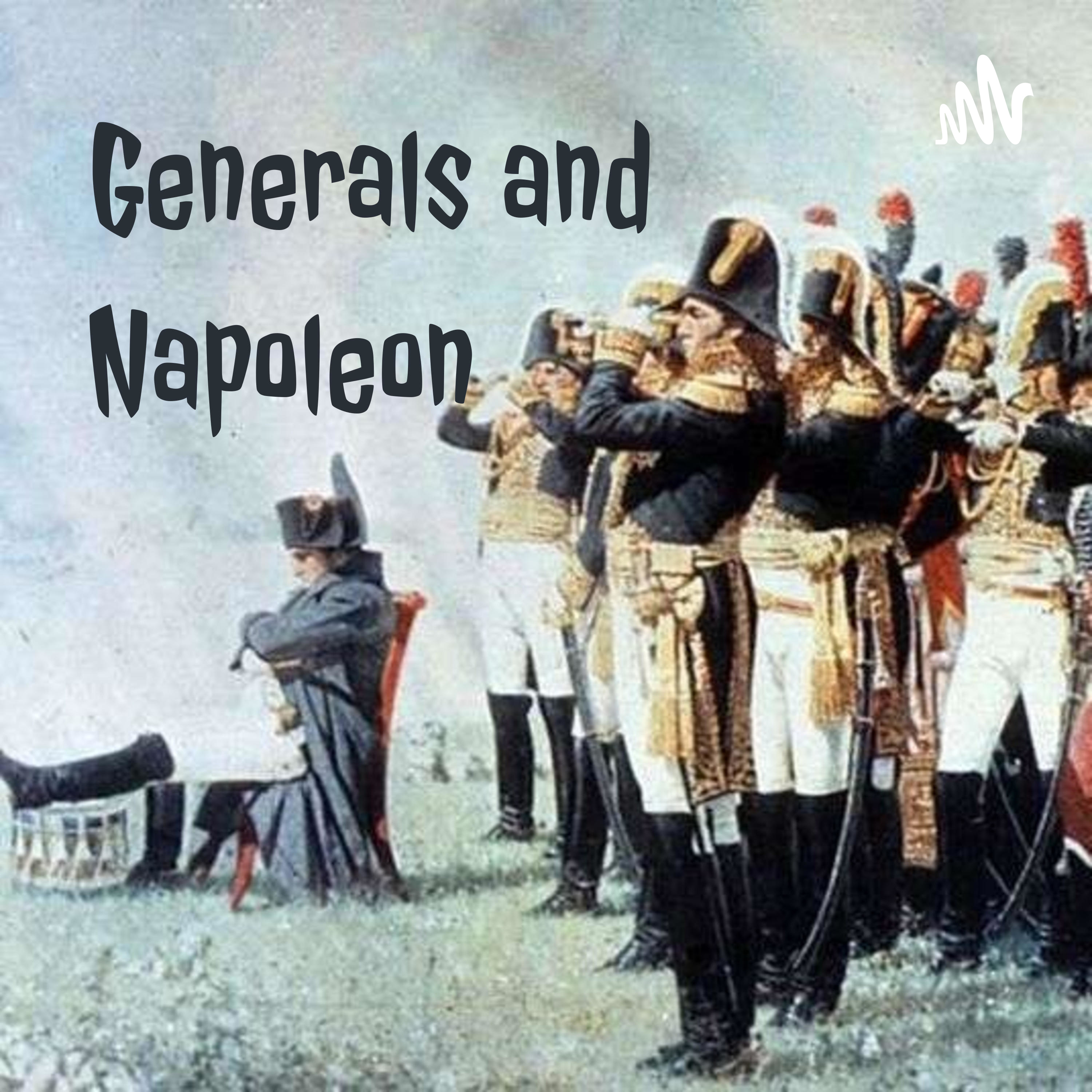
Generals and Napoleon
John W. Viscardo
Shipwrecks and Sea Dogs
Rich Napolitano
French Revolution & Napoleon (Grey History)
Grey History (William Clark)
The Life and Times of Frederick the Great
Alec Avdakov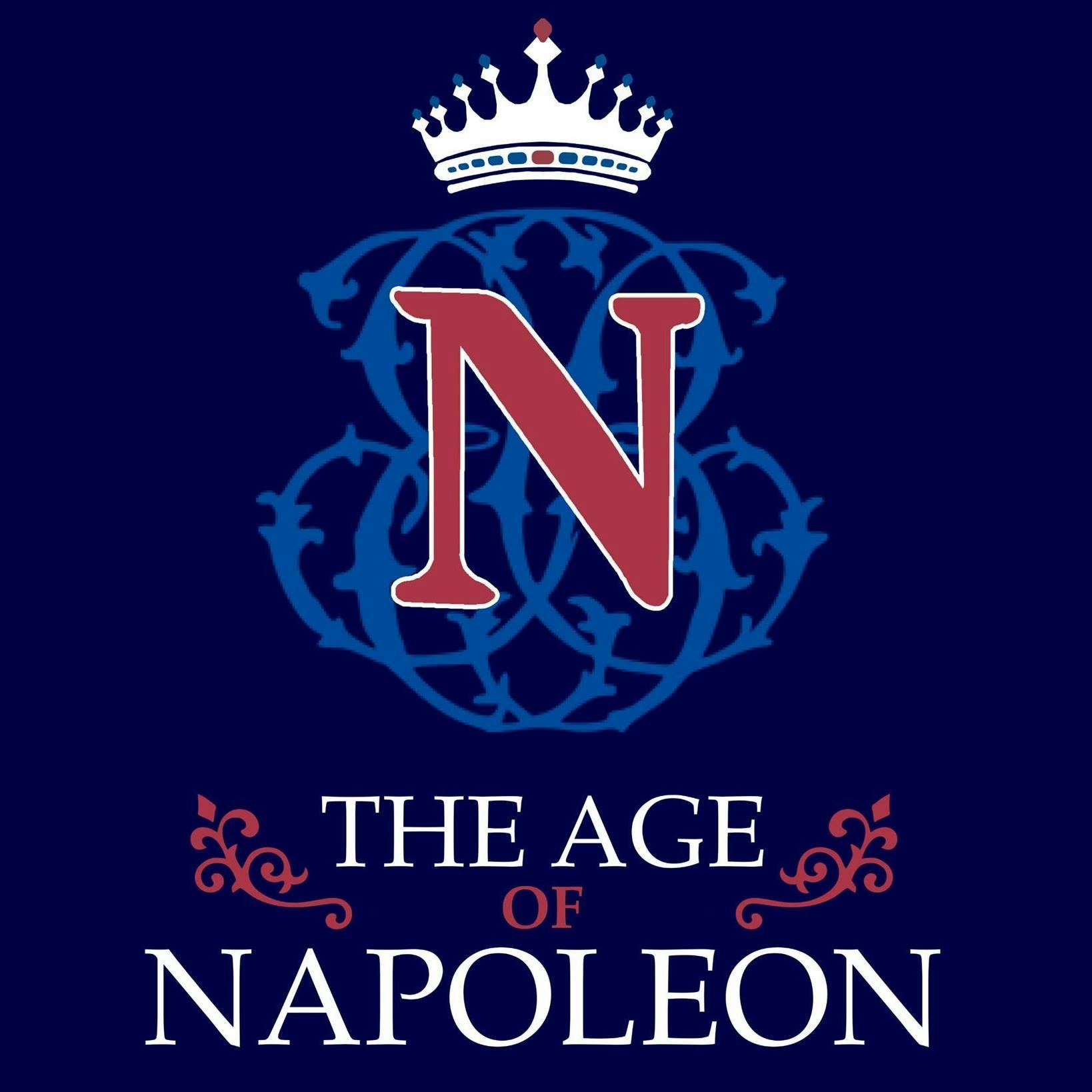
The Age of Napoleon Podcast
Everett Rummage
The Siècle History Podcast
Evergreen Podcasts
The Napoleonic Wars Podcast
Zack White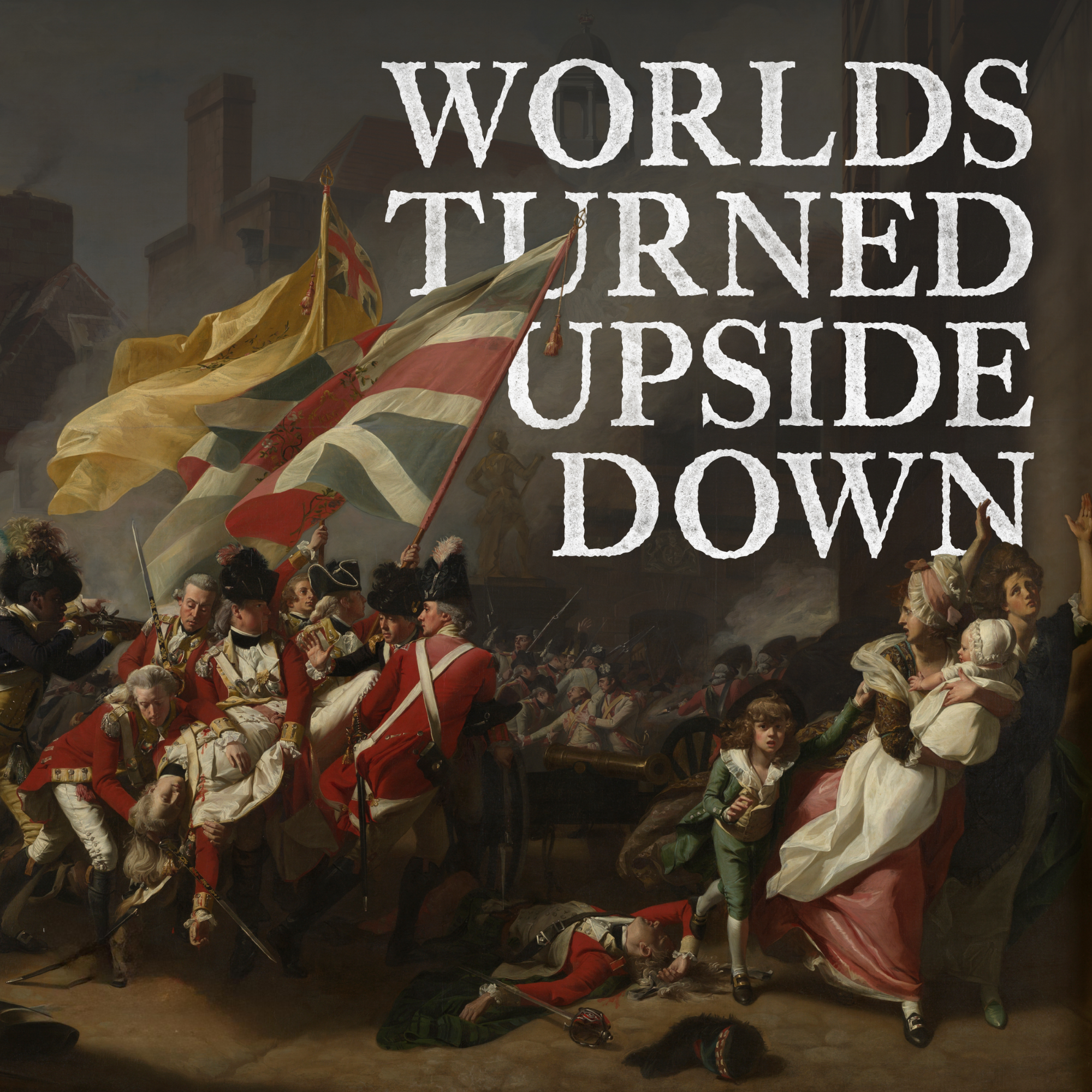
Worlds Turned Upside Down
Roy Rosenzweig Center for History and New Media
Empire-Builders
David Mainayar
Battles of the First World War Podcast
Mike Cunha
New York, Quebec, and The Water Route to the Center of the World
William Matthews
Deep into History
Deep into History
Battle Royale: French Monarchs
Ben Clarke and Eliza Sommers
A History of Japan
Justin Hebert
The French History Podcast
Evergreen Podcasts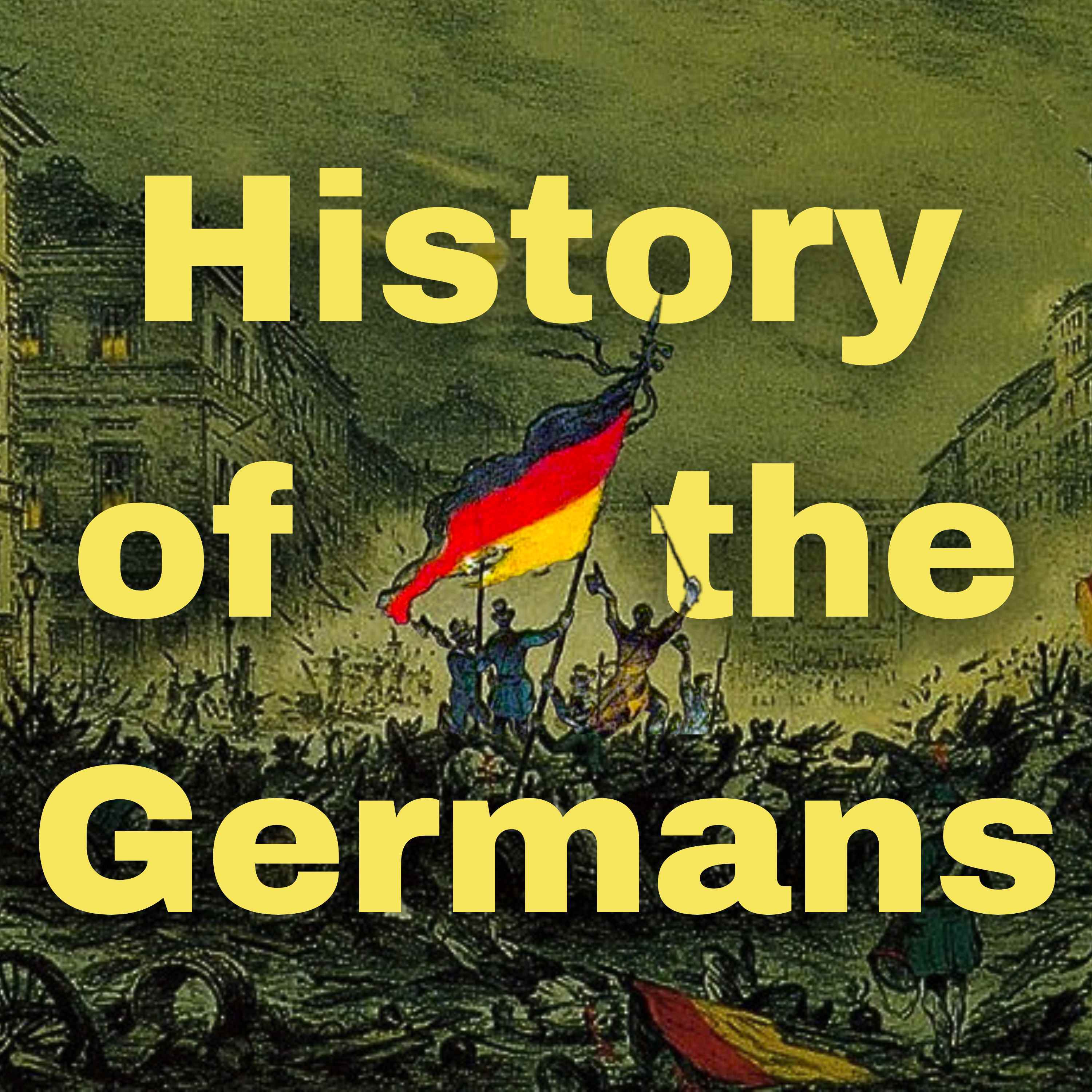
History of the Germans
Dirk Hoffmann-Becking
Half-Arsed History
Riley KnightFrench-Canadian Legacy Podcast
French-Canadian Legacy Podcast
The History of England
David Crowther
Canadian History Ehx
Craig Baird
Hugos There Podcast
Hugos There Podcast
Hugo, Girl!
Hugo Girl

